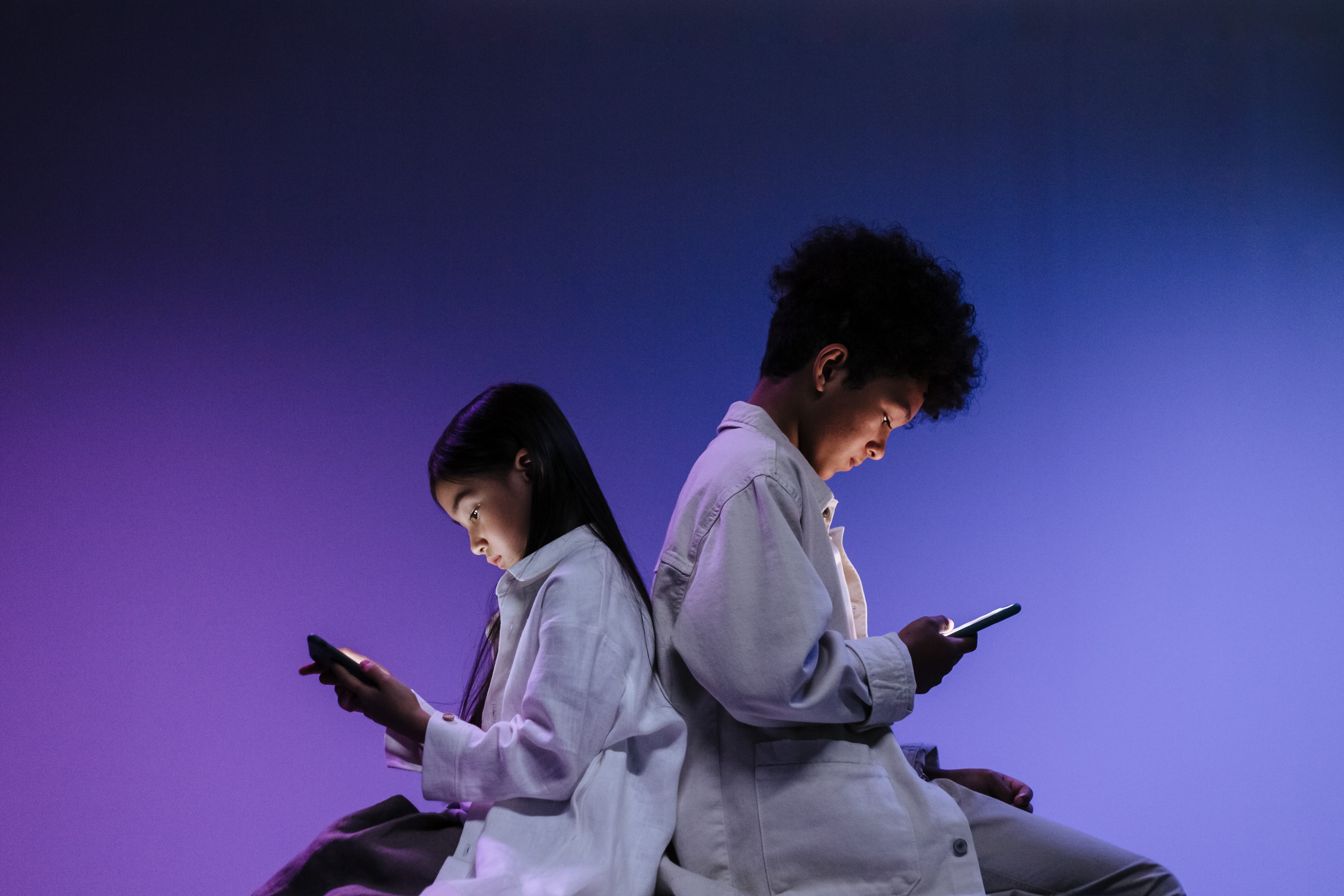Influence of technology on sleep among young children

Written By: Kawal Bir, MD.
In today’s digitally-fueled times, young children are growing up with increasing exposure and easy access to digital media. This has introduced a new wrinkle to the challenges of parenthood. Due to technology’s ubiquitous presence in our young children’s lives, attention has turned to the potential and real outcomes of sustained exposure to electronic devices during the early childhood development. The complexity of the impact of technology on young children has increased drastically. Thanks to mobile media, previously high-quality content that was only available on television (e.g. programming available on America’s Public Broadcasting Station), is now readily available with an Internet connection at any location (dining room, bedroom, car etc.) with a mixed quality of content.
The majority of the work on effects of technology in young children focuses mainly on social or educational outcomes. Another important area to consider is the health implications. One such critical outcome, especially in young children is, sleep. It is very important to examine if and how exposure to technology affects it.
In this blog, I’ll briefly talk about the research that has been conducted on the uses and impact of technology among young children’s sleep. I use the term technology as an umbrella term encompassing a variety of media or devices (including television, smartphones, video games, tablets, computers) and platforms (e.g. Netflix, YouTube etc.). Also, the term young children refer to children under the age of 6 years and before they have commenced formal schooling. Most of the research that has been done on sleep and young children, focuses on children between the ages of 3- 5 years and there are only very few studies devoted to children younger than 3 years of age. I’ll focus on the available research that is available for younger children.
There is a growing body of research showing that young children’s technology use is negatively related to their sleep quality, since the exposure to short wavelength blue light from self-illuminating screens (such as smartphones, TV, computers etc.) results in delayed onset in the timing of melatonin secretion, which then delays the onset of sleep. In turn, this disrupts the circadian rhythm. The presence of a television in the bedroom has shown to correlate with disrupted sleep among young children. This may manifest as nightmares and feeling tired in the morning. For example, Brockmann and colleagues found that 55% of preschool-aged children with sleep disturbances watched television in the evening compared with 33% of children without abnormal sleep patterns. Nathanson and Beyens found that 3- to 5-year-old children who used tablet devices in the evening hours (1) went to bed later, (2) resisted bedtime more, and (3) had shorter sleep durations compared with other children; moreover, each of the 3 sleep variables were related to worse effortful control (a form of self-regulation) among the children. They found strong relationship between tablet use and bedtime resistance. This finding may seem to be counterintuitive to parents who use technology to calm/ prepare children for bedtime; in fact, this work suggests that mobile device use achieves the opposite effect.
Sleep consolidation reflects the proportion of total sleep that occurs at night and represents a mature sleep pattern. Children’s sleep becomes more consolidated as they age and shifts away from daytime napping. Sleep consolidation is linked with enhanced cognitive function and its presence is considered a developmental milestone. Beyens and Nathanson found that multiple forms of technology were related to less sleep consolidation among 3- to 5-year-old children. Nathanson and Fries found that television viewing time was related to fewer sleep hours at night, which, in turn, predicted weaker theory of mind performance. Sigtsma and colleagues found that sleep time was a mediator in the relation between television viewing and body mass index among 3- to 4-year-old children. More exposure was related to a shorter sleep duration, which, in turn, predicted high body mass index. Compared to majority of research which relies on parent reports of young children’s sleep behaviors (such as reports of bedtimes/wake times) or responses to the Children’s Sleep Habits Questionnaire; Downing and colleagues used actigraphy, an accelerometer device that estimates sleep objectively. They found a negative association between 3- to 5-year old boys’ television viewing and their sleep time, lending more support to the research showing a negative association between technology use and young children’s sleep.
Based on my read of different articles, even though the body of work is relatively small, research suggests that technology use is associated with poorer sleep outcomes among children less than 6 years of age. Clinicians should assess children’s technology habits when determining the source of young children’s sleep problems. They may recommend that bedrooms be free of technology and that exposure should be prohibited/limited in the hours preceding bedtime. Clinicians should also encourage parents to shield their young children from scary media content (violent programming/games) and advise parents to consult Common Sense Media’s website (commonsensemedia.org) for guidance and recommendations for age-appropriate media content.
(References:
- Nathanson AI, Beyens I. The relation between use of mobile electronic devices and bedtime resistance, sleep duration, and daytime sleepiness among preschoolers. Behav Sleep Med 2018
- Downing KL, Hinkley T, Salmon J, et al. Do the correlates of screen time and sedentary time differ in preschool children? BMC Public Health 2017
- Bernier A, Beauchamp MH, Bouvette-Tourcot, et al. Sleep and cognition in preschool years: specific links to executive functioning. Child Dev 2013;84(5): 1542–53
- Sigtsma A, Koller M, Sauer PJJ, et al. Television, sleep, outdoor play and BMI in young children: the GECKO Drenthe cohort. Eur J Pediatr 2015
- Nathanson AI, Sleep and Technology in Early Childhood Child Adolescent Psychiatry Clin N Am. 2021 Jan;30
- Nathanson AI, Beyens I. The role of sleep in the relation between children’s mobile media use and effortful control. Br J Dev Psychol 2018)